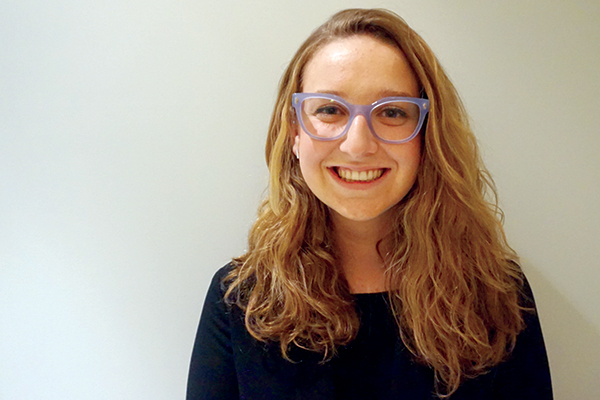Essay earns global writing award
October 24, 2017
Share
When Eden Gelgoot completed her final term paper for the course Conservation Principles: Cultural Heritage Preservation (ARTH 404), she knew that it was a solid work, involving many long hours of effort, from preliminary research to writing to editing.

Happy with the final product she decided to submit it to the Undergraduate Awards, an international competition that recognize undergraduate research. This year there were nearly 6,500 submissions from 299 institutions in 47 countries.
Weeks passed and she thought little more of the competition.

She went on to graduate from Queen’s with a BSc (Honours) with a major in life sciences and a minor in art history. She completed an internship at Johns Hopkins Hospital in Baltimore where she participated in clinical shadowing, did promotional work for the Academy of Clinical Excellence, and worked on a project that uses paintings to promote a humanistic approach to health care delivery. During the summer, she worked as a head counsellor at a residential summer camp in Algonquin Park.
Then, in September, Ms. Gelgoot was notified that her essay, The role of the UNESCO World Heritage List in the commemoration of World War II, was judged the Global Winner in the Art History & Theory category. As a result she has been invited, all expenses paid, to present her work in Dublin, Ireland at the UA Global Summit in November. The essay also will be published in The Undergraduate Journal.
“I am excited to travel to Ireland to present my work and to meet people from schools all around the world. I really didn’t think anything would come from it so I was pretty shocked when I heard the news,” she says. “It has given me a boost of confidence in my own abilities in terms of writing and creating a work of original research.”
Ms. Gelgoot had taken a course in second year, Culture and Conflict, with Cathleen Hoeniger (Art History and Art Conservation) which eventually led her to enroll in Conservation Principles in her fourth year.
“The reason I took this second course with Dr. Hoeniger is that it offered the intersection between the arts and sciences that I was looking for,” she says. “The field of art conservation offers the potential to combine my interests in terms of the technical aspects of art conservation and of the art historical components as well.”
During the course, students look into aspects of cultural heritage preservation and conservation through discussions, readings and presentations, with a focus on the development of UNESCO and the World Heritage List. The course culminated in a research project that required students to examine two cultural heritage sites on the World Heritage List.
It was her initial interest in Auschwitz that led her to investigate the role of the World Heritage List in the commemoration of the Second World War.
“Coming from a Jewish background I was interested in Auschwitz,” she says, adding that UNESCO itself was developed as a response to the Second World War. “I was interested in not only looking at the Holocaust but also the Hiroshima bombing and how the World Heritage List helps to commemorate the injustices that happened and to further the memories of these events."
The work of other Queen’s students was highly commended, meaning their research was recognized as being in the top 10 per cent of their category:
- Evelyna Ekoko-Kay (Literature)
- Caela Fenton (Literature)
- Sari Ohsada (Social Sciences: Anthropology & Cultural Studies)
- Vinyas Harish (Social Sciences: Sociology & Social Policy)